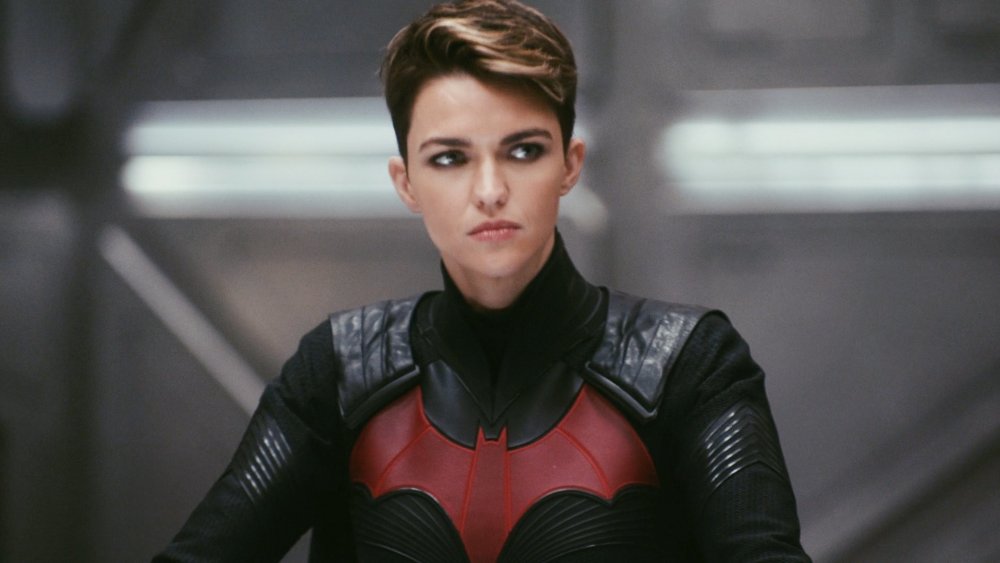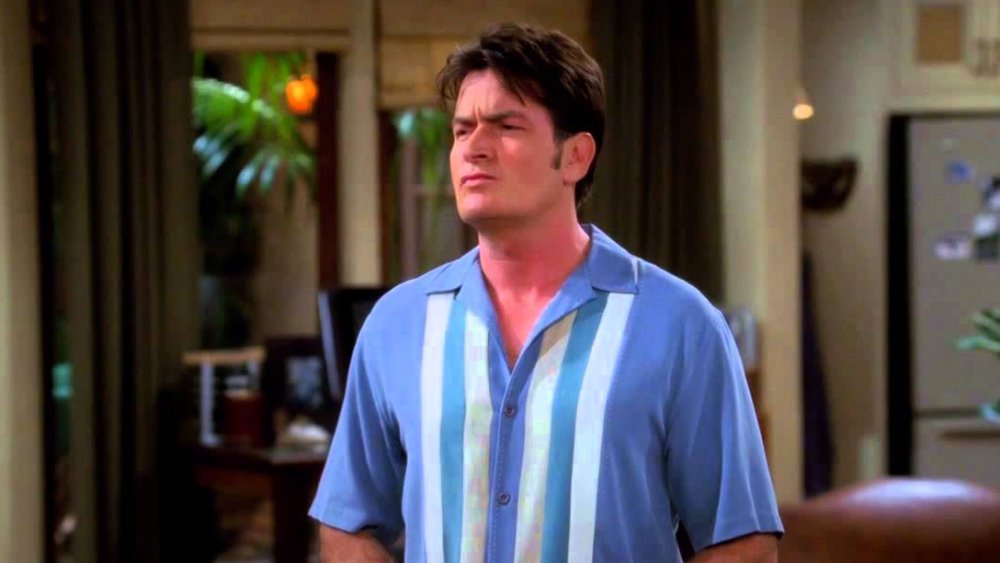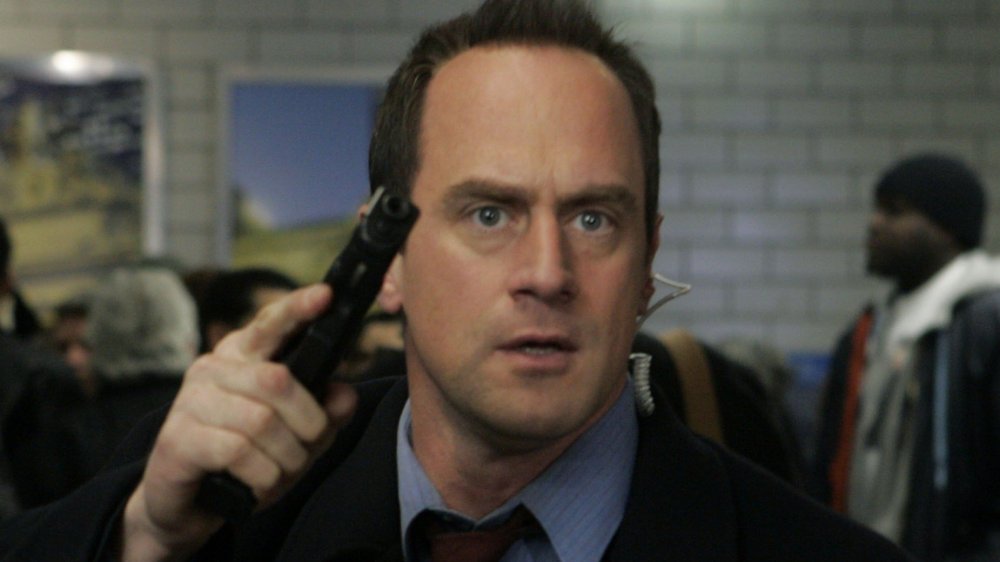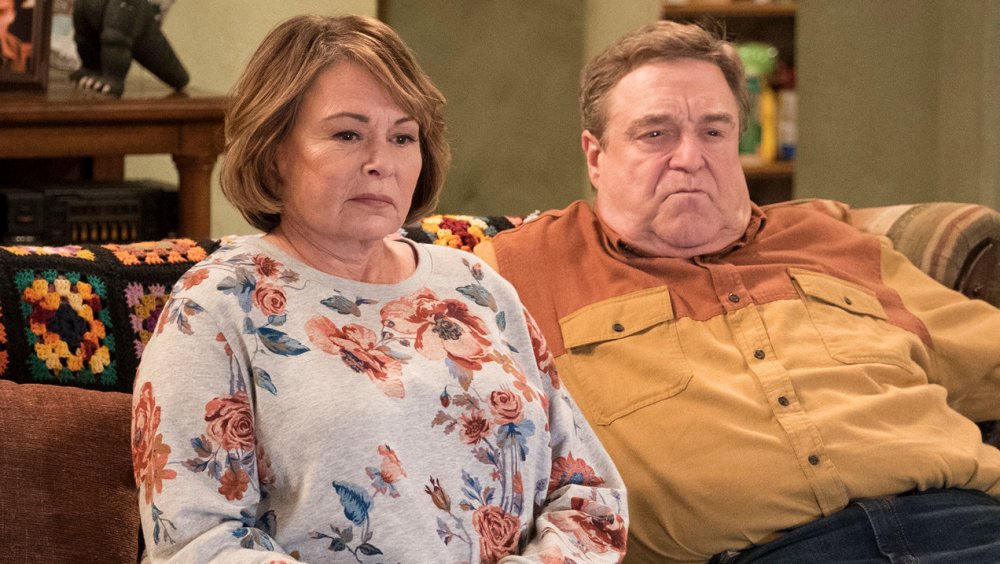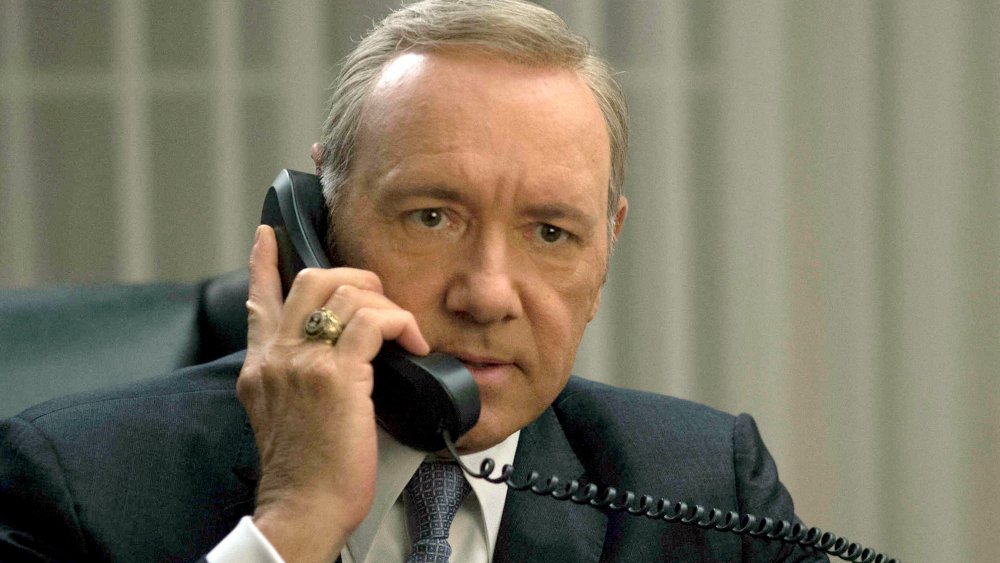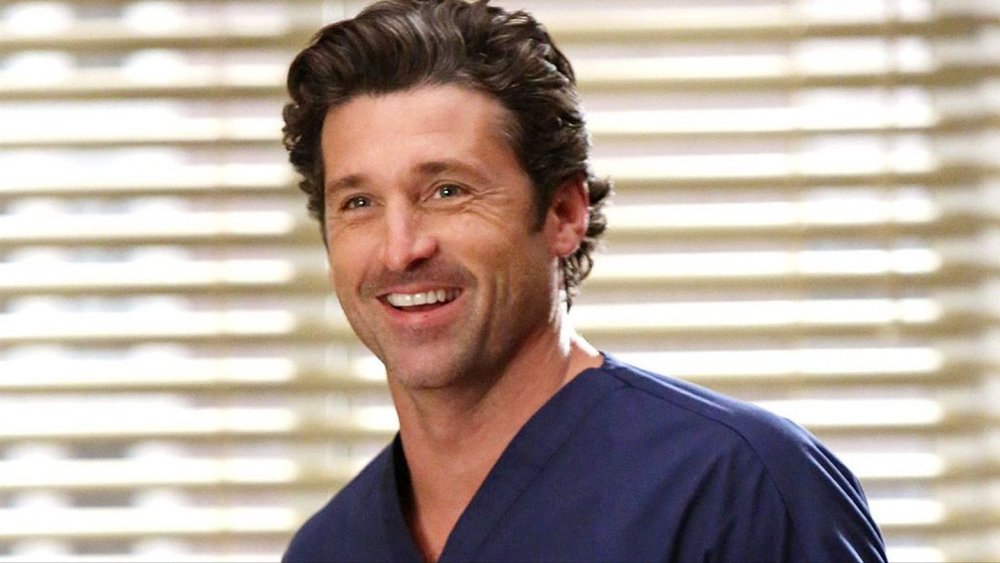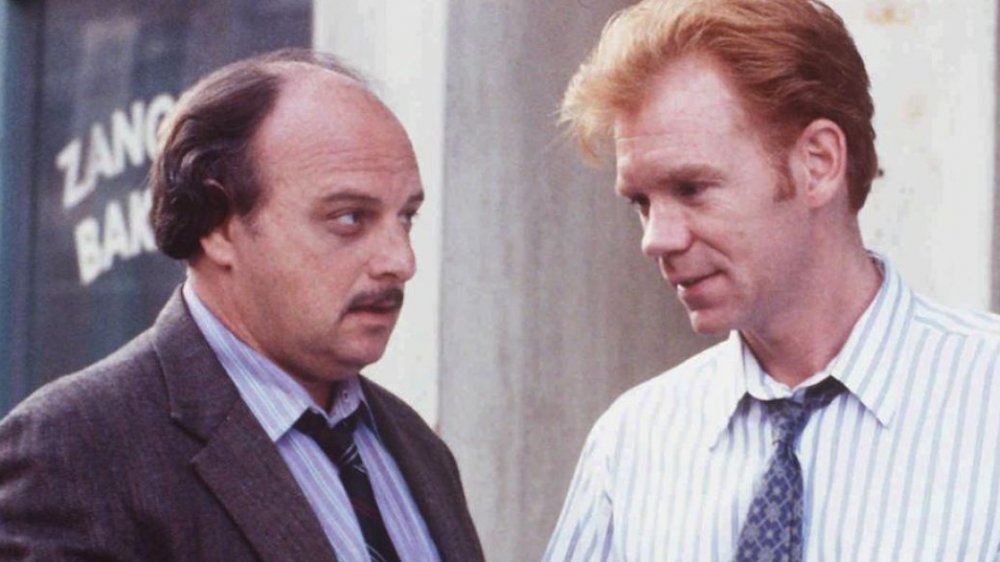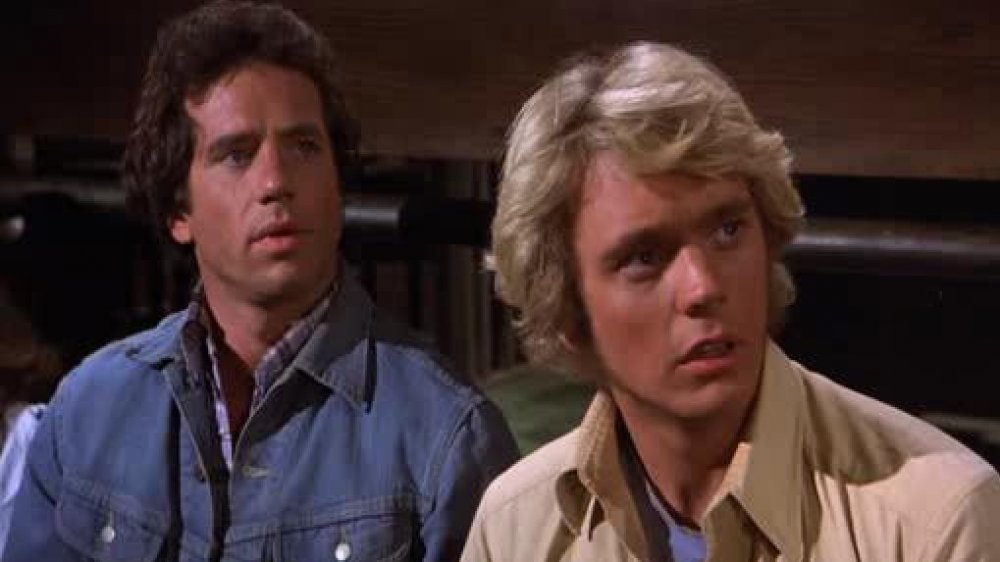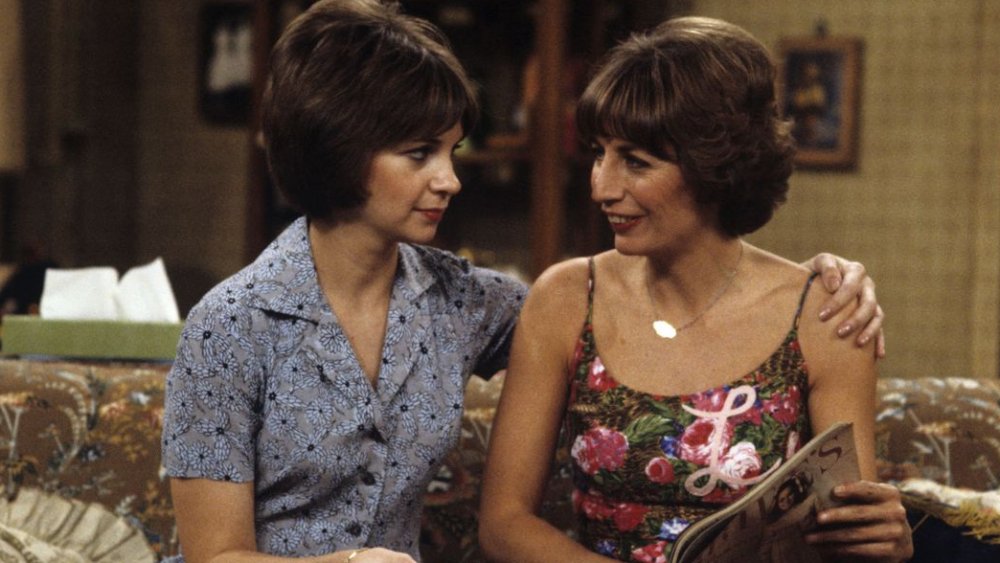Why These TV Shows Cut Out Their Main Character
Most long-term ways of earning a living aren't like acting on a television series. Putting on a costume and spending day after day, year after year, pretending to be somebody else and convincingly reciting words that somebody else wrote is unique to the business of small-screen entertainment. But starring on a long-running TV show is like many regular jobs in that over time, it can grow tedious, boring, and unfulfilling, causing an actor to walk away from the job. Sometimes, other parts of life can get in the way of performing ... or a person can mess up so royally, either on the set or off the clock, that they go and get themselves fired.
The people left to deal with the fallout are the writers and producers of TV series, people who have to come up with a way for their series to make sense when its lead actor or actress leaves for whatever reason. And needless to say, it's a pretty difficult job, sometimes resulting in some strange episodes of television. From superhero shows to sitcoms, here's why these TV shows cut out their main character (and how they dealt with the aftermath).
Batwoman lost its original Batwoman
In the fall of 2019, the CW added to its growing roster of D.C. Comics-based superhero shows with Batwoman. Set in Gotham City in the wake of the disappearance of Batman, its famed protector, prodigal daughter Kate Kane returns home to the crime-addled metropolis to fight villains as the vigilante Batwoman, both beside and in spite of her father, an ex-soldier turned paramilitary leader.
Model and actress Ruby Rose (John Wick 2, Orange is the New Black) landed the role of Kate Kane/Batwoman, and the CW was pleased with the entire operation, offering a second-season renewal for the series in January 2020, just a few months after it debuted. Batwoman was the biggest starring vehicle of Rose's career ... until May 2020 when the actor surprisingly announced that she wouldn't be around for the series' second season.
A source close to Rose deflected speculation to Variety that the departure had anything to do with an on-the-job herniated discs and a subsequent surgery. Later, Variety reported that Rose didn't care for the extremely long shooting days of the series, and that it led to on-set tension, culminating in a mutual decision between the actor, network, and Warner Bros. Television to find a new Batwoman. A couple months later, producers announced they'd hired Javicia Leslie to star on the show, and that she'd play a new character named Ryan Wilder who takes on the Batwoman identity.
Charlie Sheen's meltdown got him booted from Two and a Half Men
Two and a Half Men has a pretty straightforward plot. Divorced sad-sack Alan (Jon Cryer) and his son, Jake (Angus T. Jones), move in with Alan's brother, Charlie (Charlie Sheen), a promiscuous and hard-living jingle writer. Nevertheless, it became the biggest sitcom of its era, earning Emmy nominations for Outstanding Comedy Series three years in a row, as well as four acting nods for Sheen. At one point, Sheen earned $1.8 million per episode, making him the highest-paid actor on television. He was at the top of his career ... until he wasn't anymore.
In 2011, Sheen, who'd struggled with a lot of darkness and demons in his personal life, engaged in a dizzying spell of events, including partying for days in Las Vegas with an adult film star, staying in rehab, seeing production on Two and a Half Men shut down so the actor could get clean, and then saying horrible things to media outlets about his boss, Chuck Lorre. At the end of it all, CBS called off the rest of Two and a Half Men's eighth season, fired Sheen, and replaced him with Ashton Kutcher.
When the show picked back up again in September 2011, the first episode opened with Alan and others by a coffin, grieving Charlie's death. According to his stalker, Rose (Melanie Lynskey), she witnessed him slip on a subway platform in Paris and fall into the path of a speeding train, which killed him instantly. Sure, that was retconned later on — revealing that Charlie had been imprisoned by his stalker before escaping and dying by falling piano — but even so, Sheen never reprised the role.
Christopher Meloni left SVU because it was just business
Television's past boasts a handful of classic police detective duos. Right up there with Starsky and Hutch, Crockett and Tubbs, and Cagney and Lacey are Olivia Benson (Mariska Hargitay) and Elliot Stabler (Christopher Meloni) of Law and Order: Special Victims Unit.
For 12 seasons — one of the longest on-screen pair-ups in small-screen history — these two good cops investigated and busted the perpetrators of some of New York City's most heinous, offensive, and shocking crimes. More than just a crime procedural, Law and Order: SVU didn't shy from the toll the work took on detectives, particularly Stabler, a devoted family man who often had a hard time acting professionally and impersonally to suspects accused of committing crimes against children. At the beginning of season 13, it wasn't too much of a surprise for viewers when Stabler retired off-screen, part of the aftermath of his sixth shooting in the line of duty.
Why Meloni left SVU wasn't so complicated or personal. According to TVLine, the actor and studio NBC Universal sat down for heated contract renegotiations in the spring of 2011, in advance of the show's thirteenth season. A deal that satisfied both sides couldn't be reached, so Meloni left.
Roseanne tweeted poorly, and her TV family mourned
Roseanne returned to TV in 2018 amidst a reboot craze that saw the returns of Murphy Brown, Twin Peaks, and Will & Grace. The 1988-1997 sitcom starring (and based on the comedy routines of) Roseanne Barr was a massive hit, in part because few other shows of the time depicted life from a lower-middle class perspective or featured strong, complicated female characters. So when it returned, viewers thoroughly welcomed back Roseanne. It ranked as the most-watched new new show of the 2017-18 season, and within days of its premiere, ABC ordered up another season. By the end of May, Roseanne ranked as the second-most-watched scripted show on broadcast TV ... and then ABC cancelled it.
Why? Well, a few hours earlier, Barr had made racially charged comments on Twitter. She likened the appearance of Valerie Jarrett, an advisor to former President Barack Obama and a Black woman, to that of an ape. Barr also suggested that Jarrett had links to the Muslim Brotherhood, which some have labeled a terrorist organization. In June 2018, ABC changed course again, ordering a spinoff/continuation called The Conners, essentially Roseanne with all of the original characters ... except Roseanne. When the new show debuted in October 2018, it was set a few weeks after the death of Roseanne Conner. In the first episode, her family believes she died in her sleep of a heart attack, but then they receive an autopsy that rules the cause of death to be an overdose on opioids she'd been prescribed after knee surgery.
Sophia Bush needed to get off the force, so Chicago P.D. sent her away
Sophia Bush was the de facto star of NBC's ensemble drama Chicago P.D. for four seasons, from the show's debut as a midseason replacement in 2014 up until 2017. Bush portrayed the complicated and nuanced character Erin Lindsay, a former juvenile criminal who became a police informant and then finally a tough and crafty Intelligence Unit detective. When it came time for the character to go, Chicago P.D. writers sent Lindsay off in a way that seemed organic and logical to the character. She accepted what was essentially another promotion to work with the FBI in New York City.
Behind the scenes, Bush's departure wasn't so smooth and natural — she hated working on Chicago P.D. "It was a consistent onslaught barrage of abusive behavior," Bush told Dax Shepard's Armchair Expert podcast (via Deadline) regarding producers' apparent refusal to improve what she felt were awful working conditions. She especially hated enduring severe Chicago winters for location shoots, and she said that her body was "falling apart" due to her lack of contentment. Bush asked to be let out of her seven-year contract, and they refused, so Bush says she went to war. "I said, 'Okay, you can put me in the position of going quietly of my own accord, or you can put me in the position of suing the network to get out of my deal, and I'll write an op-ed for The New York Times and tell them why.'" Bush won out.
House of Cards fired Kevin Spacey and killed his character
Today, Netflix is the home of prestigious, Emmy-winning TV, but a few short years ago, it was primarily known as a DVD-by-mail service with a nascent online wing where customers could stream old movies and sitcom episodes. In 2013, House of Cards changed all that, as it boasted an impressive, legitimizing pedigree. The Social Network and Fight Club filmmaker David Fincher produced the show and directed the pilot while two-time Oscar winner Kevin Spacey starred as Francis Underwood, a scheming politician who does absolutely anything to become president of the United States (and who addresses the viewer in unnerving, Ferris Bueller-style asides). Plus, acclaimed actress Robin Wright held her own with Spacey as Underwood's wife, Claire, a cutthroat politician with her own agenda to advance.
Luckily, producers could center the show on Wright and Claire. When the show returned for its sixth season in late 2018, Wright headed up the cast when her character became the first female president of the United States. As for Frank, his misdeeds finally caught up to him — his loyal top crony Doug Stamper (Michael Kelly) poisoned the man in his sleep. It was a fitting end for Underwood, necessitated by the sudden exit of Spacey. Netflix shut down production on House of Cards and fired the show's star when more than a dozen men came forward with allegations that Spacey had committed various acts of sexual impropriety.
Grey's Anatomy didn't want to kill Dr. McDreamy, but it had to
After ten years on the air, Grey's Anatomy proved itself a definitive nighttime soap, centered around the tumultuous romance of Seattle hospital surgeons Dr. Meredith Grey (Ellen Pompeo) and Dr. Derek Shepherd (Patrick Dempsey). In 2014, Dempsey signed a contract extension that would keep him on the show through its twelfth season, which made the sad and shocking exit of Dr. Shepherd — aka "Dr. McDreamy" — near the end of Grey's Anatomy's eleventh season all the more surprising. After witnessing a car accident, Dr. Shepherd pulls over to offer help to the victims, and he turns them safely over to paramedics. As he's about to leave, he's hit by a semi-truck and is rushed into surgery, only for doctors to declare him brain dead and for a surgical intern to remove him from life support.
At the 2015 summer Television Critics Association press tour (via E! News), show creator Shonda Rhimes explained that to stay true to plot and characters, the erstwhile Dr. McDreamy had to perish. "What were the options?" Rhimes explained. "Either Derek was going to walk out on Meredith and leave her high and dry, and what was that going to mean? That was going to suggest that the love was not true, the thing we had said for 11 years was a lie and McDreamy wasn't McDreamy. For me, that was untenable."
David Caruso thought he could be much bigger than NYPD Blue
David Caruso had bobbed around Hollywood for more than 15 years with minor roles in movies and TV shows before landing a dream gig in 1993. Yeah, we're talking about Detective John Kelly on NYPD Blue, an ambitiously gritty, dark, and realistic ABC crime drama created by super producer Steven Bochco. The show was an instant hit, and instantly, millions knew who David Caruso was, particularly after he scored an Emmy nomination for Outstanding Lead Actor in a Drama Series.
Rather than enjoy the good thing he had going for himself, Caruso left NYPD Blue after just one season in favor of a movie career. He evidently greatly overestimated his fame and the demand for movies starring David Caruso because the two back-to-back thrillers he made, Kiss of Death and Jade, were both big box office bombs. He wouldn't successfully re-emerge until 2002 with CSI: Miami, but back on NYPD Blue, writers got rid of Det. Kelly early in season two. Suspected by Internal Affairs of covering up a murder for his lover, he was demoted from detective work to radio dispatch, and then he just resigned from the force entirely.
Those Duke boys wanted more cash
The Dukes of Hazzard was unlike anything else on TV. The action-comedy-drama concerned the adventures of rural Georgia cousins Bo Duke (John Schneider) and Luke Duke (Tom Wopat) as they ran afoul of corrupt lawmen Boss Hogg and Sheriff Rosco P. Coltrane in their souped-up orange Dodge Charger, the General Lee. Dukes was extremely popular. It was the #2 show in all of TV for the 1980-81 season, and it generated big merchandise sales. It made so much money for CBS and studio Warner Bros. that in early 1982, Schneider and Wopat threatened to leave the show if they weren't given a salary increase and a cut of the merchandising profits.
Warner called their bluff and let the actors walk, launching a public search for a couple of replacement Dukes. Out of the 2,300 guys who auditioned, producers selected actors Byron Cherry and Christopher Mayer to play a couple of other, heretofore unseen Duke cousins named Coy and Vance. They slipped into place and squared off with Boss Hogg and company while Bo and Luke, it was explained, had left Hazzard County to put their driving skills to the test on the NASCAR circuit. But when Coy and Vance moved in, viewers moved out. Dukes fell to #34 in the ratings in the 1982-83 season, and Warner, Schneider, and Wopat soon reached an agreeable financial agreement. The old Duke boys came back, and the new ones were jettisoned.
Laverne and Shirley's Cindy Williams chose family over work
For Cindy Williams, Shirley on Laverne and Shirley, 1982 was shaping up to be a very big year. She got married to pop singer Bill Hudson, learned she was pregnant with her first child, and her ABC sitcom — still among the top 20 most watched shows on television — was renewed for an eighth season. But those latter two life events, baby and show, would prove conflicting.
"I thought I was going to come back, and they'd hide [her emerging baby bump] behind benches, couches, pillows, and that wasn't it," Williams told Today in 2015. Rather, when presented with her contract and schedule for the 1982-83 season, they had her scheduled to work on her due date. As she explained, "I said, 'You know, I can't sign this.' And it went back and forth and back and forth, and it just never got worked out." Williams then sued producer Paramount TV and producer Garry Marshall for $20 million, claiming they broke an agreement to accommodate her pregnancy plus still pay her a hefty per-episode fee.
The result was that the eighth — and what would turn out to be the final — season of Laverne and Shirley suffered from an almost complete lack of Shirley. That was unceremoniously explained away by having Shirley leave a note for Laverne, informing her she moved overseas to be with her new husband, an Army medic.
Why the sheriff left town on The Walking Dead
The Walking Dead is a show about surviving in a violent and uncertain U.S. after a zombie apocalypse, and for many years, it was told through the eyes of Rick Grimes, a small-town sheriff who leads a tight-knit group of survivors. In 2018, Andrew Lincoln, the actor who played Sheriff Grimes for eight seasons, announced that he'd soon depart the series. Why would an actor decline to continue playing a lead role on a successful show that made him famous? Well, The Walking Dead shoots for half of the year in Georgia, and during filming, Lincoln's family would stay behind in England. "I have two young children, and I live in a different country, and they become less portable as they get older," Grimes told EW Radio. "It was that simple. It was time for me to come home."
As opposed to the usual, obvious, and easy way to get rid of a character on The Walking Dead — kill them by having them devoured by zombies or murdered at the hands of a rival faction — producers let Rick Grimes live. In a November 2018 episode, he seems to perish in an explosion, only to survive and then be whisked away on a helicopter by persons unknown to places unknown. But interestingly, the day after the episode aired, the news broke that while Lincoln (and Rick) was indeed off the TV series, actor and character would return to the franchise in a trio of feature films.

